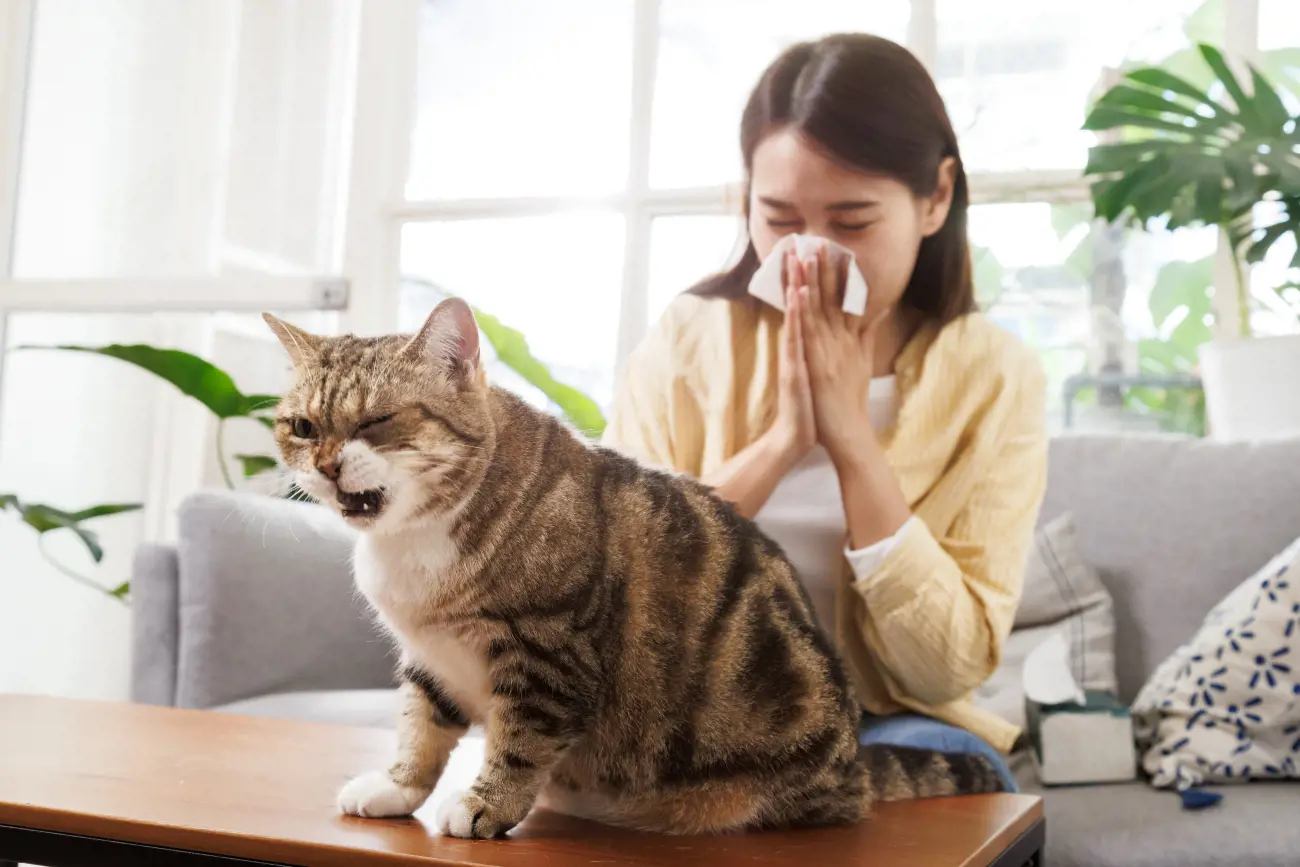What do these cat noises mean?
16th June, 2020

Ever wondered what your tabby would say if it could talk? Well, it already can – and learning to speak your moggy’s language is essential for feline-human bonding.
Cats may lack the wide vocabulary of their human owners, but with a few choice sounds, plus some very clear body language, they can articulate a whole range of emotions and demands.
Remember – if your cat is making noises that concern you, contact a vet to discuss what might be wrong. Insurance for pets from Purely Pets helps cover fees and provides you with a 24-Hour Vet Helpline.
To learn the difference between a contented purr and an outraged ‘me-OW’ read on for a quick translation of some of the most common cat sounds.
Meowing
A meow doesn’t have just one meaning. There’s an entire vocabulary of meows that cats make – and your feline friend will have its own personal dialect.
A short meow, or mewl, is generally “hello” in cat-speak: a greeting that cats give to their owners and selected visitors.
It’s best answered with a stroke or a tickle behind the ears – but it’s often just the opener to more meaningful cat chat.
A longer meow is a multi-purpose sound that signals a request or demand. “Feed me now” and “let me outside” are possible interpretations, depending on whether your cat is staring pointedly at its empty bowl or scratching at the door.
If you ignore this meow, it might slip into a lower register and become a discontented grumble.
A repeated, short, shrill meow, also called trilling, suggests excitement: there’s a bird! A shiny new toy! Dinner! It could well be accompanied by frantic chasing, rolling or jumping, particularly if your cat’s still a kitten.
And a high-pitched meow translates as “ow!” – a yelp of pain, or an expression of alarm.
Has your moggy been injured or hurt? Look out for signs such as bleeding or limping, and don’t hesitate to contact your vet if you’re concerned.
If you have a pet insurance policy from Purely Pets, vets’ fees up to £15,000 per year are covered, depending on your chosen level of cover.

Caterwauling
Ever been woken up by alley cats howling in the night? Then you’ve heard a caterwaul.
This almost otherworldly wail is not intended for your ears – it’s usually a sign of a female cat who’s in heat and is searching for a mate.
Your moggy is unlikely to make this sound if she has been spayed, enabling you to sleep soundly and stay on good terms with your neighbours.
However, both male and female cats may yowl when they’re bored, agitated, or about to get into a fight with another cat.
To keep the neighbourhood peace, and avoid injury to your pet, consider bringing your cat in at night.
Hissing
If you hear a hissing coming from your pet, chances are there’s another animal lurking nearby.
This frightened or angry noise usually means “go away”, and indicates your cat is warning off a rival – perhaps next-door’s moggy who has invaded your pet’s territory by straying into your garden.
So if you hear a hiss, it could be time to take pre-emptive action before you’ve got a full-scale cat fight on your hands.
However, hissing, especially if there are no other animals around, can also be a sign that your cat is in pain and a visit to your vet could be in order. Insuring your pet with Purely Pets could help you cover the cost of treatment.

Growling
You might think of growling as dog-speak, but cats can muster a good growl, too. Just as with their canine counterparts, it’s a sign that their enemy needs to back off.
If you’re unwise enough to try to remove your pet’s food bowl while it’s eating, that enemy could be you.
Warning – this sound could well be followed by the universal language of scratching or biting. Best avoid or tackle this problem as quickly as possible.
Chattering
This is an uncommon sound, which many owners never get to hear or learn. It sounds roughly like a stuttering meow or a kind of bleating, and may also be called chirping.
The meaning? It’s not really translatable into any human language.
Cats make it when they’re hunting, or watching potential prey through a window. So it probably suggests excitement, anticipation, or even frustration.
Some researchers have theorised that it could be mimicry, and that your cat’s trying to lure its prey into a false sense of security by imitating the sound that species makes.
Surely your own cuddly, lovable Tiddles could never be so cruel!
Purring
The final piece in the cat communication jigsaw is the one all owners live for: purring.
This soft, full-body rumble means “I’m happy”, “keep cuddling me” and “life is just perfect right now”.
Purring can be quiet, when your cat is curled up close to you. It can be loud, when your cat’s lying on your feet in bed. Either way, purring means that all’s well in your cat’s world – and it wants you to know it.
Cats mainly purr when they’re in the company of humans or grooming other cats. Sometimes, though, they just love their food or toys so much that they purr while eating or playing alone, too.
Take care, though – there are occasions when purring can be misleading. Researchers suggest that cats sometimes self-soothe by purring, or might use the sound as a call for help.
So if there’s no cause for your cat to be purring with contentment, then look to see if there’s any reason why it might be in discomfort or pain.

Get a quote from Purely Pets today
At Purely Pets, we understand cats’ language. And we know that they need the very best pet insurance to keep them purring happily for years to come.
That’s why we’ve designed 15 levels of lifetime cover, so you can choose the right policy for your chatty cat. Cover for vets’ fees ranges from £1,000 to £15,000 per year, with excess starting from as little as £60.
Contact Purely Pets today to get your cat covered.
Helpful Pages
Recent Posts

Why do Great Danes bury their heads?
12/03/25
Find out more about Beagles
28/02/25Pet Insurance Quote
- 98% claims paid *
- Claims paid directly to vets
- 24/7 vet video consultations
- Interest free monthly payments


